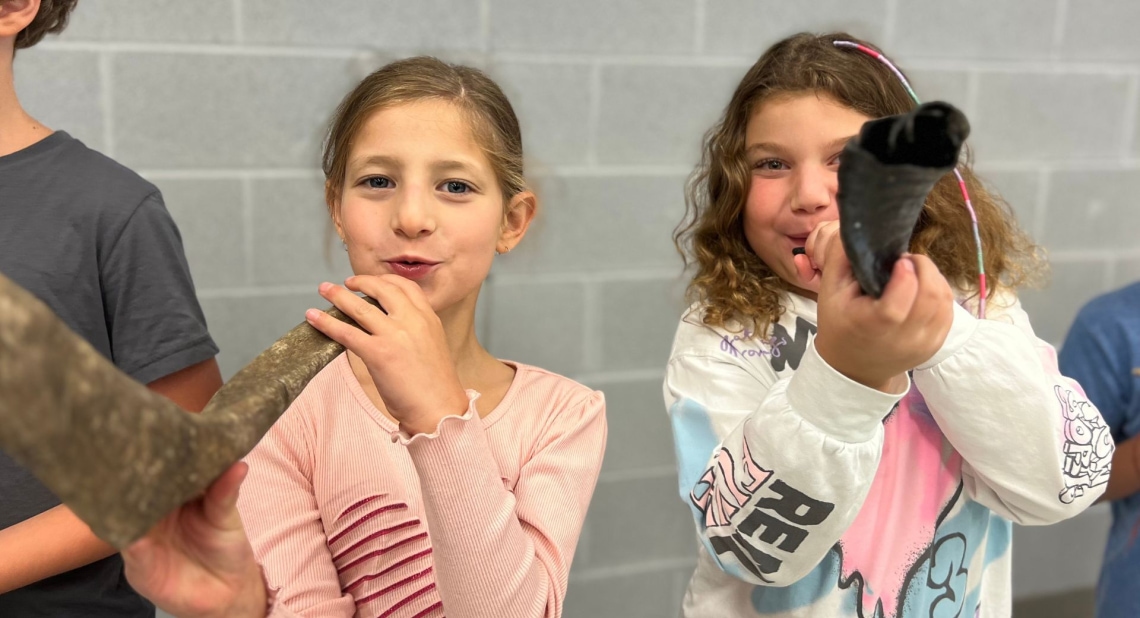
Even as I am set to send out this Rosh HaShanah message, news has come through of the Iranian attack on Israel and updates from our loved ones there from shelters and safe rooms. So in addition to the sentiments articulated below, I add my fervent prayer for the safety of our Israeli brothers and sisters, and that security be returned to them in short order.
Rosh HaShanah 2024/5785 Tashpah
מַה־שֶּֽׁהָיָה֙ ה֣וּא שֶׁיִּהְיֶ֔ה וּמַה־שֶּׁנַּֽעֲשָׂ֔ה ה֖וּא שֶׁיֵּעָשֶׂ֑ה וְאֵ֥ין כל־חָדָ֖שׁ תַּ֥חַת הַשָּֽׁמֶשׁ׃
Only that shall happen which has happened,
only that occur which has occurred,
and there is nothing new under the sun.
Ecclesiastes 1:9
More than ever before, this season of Jewish holidays reminds us of the cycles in our lives.
Rosh HaShanah is about the renewal of the year, the importance of taking stock, and recommitting ourselves to lives of significance and virtue. It comes as we are settling into a new academic year, adding extra meaning for so many of us whose lives follow the rhythms of our schools. And Sukkot connects us to the cycles of nature, of planting and harvesting, to reacquainting ourselves with the fruits of the land of Israel and to spending time in the outdoors — under the Schach and the stars.
Between Rosh HaShanah and Sukkot comes Yom Kippur, with liturgy that compels us to contemplate our mortality. In the Unetaneh Tokef prayer, we ask: “Who shall live and who shall die?” In Israel and Gaza, just a few days after we last recited these prayers, the horrendous Hamas attack launched a war in which so many have suffered and died. This year, as we wonder about our own fates for the coming year, we will surely also think about the Israeli hostages and their families. We pray that this year brings the hostages freedom and a return to their loved ones and communities.
Another cycle we recognize is a historical one. Our people have suffered waves of persecution over the centuries that have forced us to endure terrible treatment and seemingly endless migrations. Since October 7 last year, another antisemitic wave seems to be taking shape here at home. Are demonstrations, encampments, vandalism and harassment the full extent of this chapter, or are we headed toward deeper disruptions to our lives, similar to those we have experienced in the past?
The culmination of this holiday season is Simchat Torah, the celebratory day we conclude the annual reading of the Torah and return to Bereishit to begin the cycle anew. Of course, it is also the day that, a year ago, brought so much death and destruction to our people. Yom Kippur reminds us of the 1973 war; so too will Simchat Torah forever conjure up the terrible images of the October 7 attack.
But just as awful memories can detract from the joy of the holiday, the essence of the holiday may also bring comfort to those in mourning or suffering loss. The Torah, after all, encapsulates the values of our people. It has helped us navigate difficult times, and find a path back to recovery, strength and stability. Indeed it is Torah — literally “teaching” — that has been our Jewish backbone, allowing generations of Jews to stand tall and persevere.
Our Bialik community continues that tradition of teaching and learning as a core Jewish value. And it is our daily work to develop the minds and Jewish identities of our students that brings us comfort and a sense of optimism as we head into 5785.
As we share the deep concern felt by the members of our Bialik community for the security of Israel at this time, we all hope that this year brings more sweetness than the last and, before it draws to a close, peace for our people everywhere.
Shana Tova!
